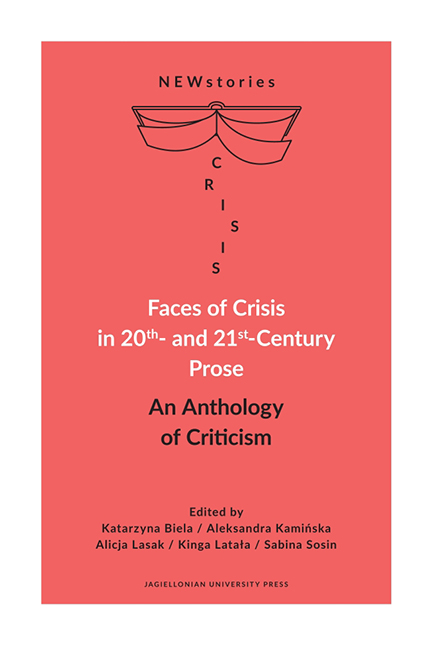Family Crisis Triggered by World War II. Rachel Seiffert’s The Dark Room
Published online by Cambridge University Press: 16 July 2022
Summary
Abstract: The aim of the essay is to explore the notion of family crisis triggered by World War II. Rachel Seiffert's historical novel The Dark Room is analysed so as to illustrate this point. The novel is composed of three independent stories “Helmut”, “Lore”, and “Micha”, each of which depicts how World War II would lead to family crises in different time periods. A family crisis may have occurred at the beginning of the war and continue throughout it. It might have also arisen in the aftermath of the war. A family crisis may have unfolded not only as a direct consequence of the conflict but also as a result of postmemory and investigation into family history. In this regard, the wartime experience might reverberate through generations, especially if close relatives were involved in the traumatic events. One person's involvement in the war could affect their immediate relatives as well as descendants. This delayed reaction to the family crisis which unfolds many decades after the war, namely when a member of a future generation is faced with it, may be analysed in relation to the phenomenon of postmemory. Thus, the essay presents how deeply rooted and incessant family crises triggered by World War II may prove to be.
According to a dictionary definition of “crisis”, it denotes “a time of intense difficulty or danger” as well as “a time when difficult and important decisions must be made” (“Crisis”). There is no doubt that wars may be deemed as troubled and turbulent times which could precipitate crisis. Thus, the essay aims at analysing faces of family crisis triggered by World War II from its onset to the close of the 20th century. The analysis is exemplified by three stories “Helmut”, “Lore”, and “Micha”, of which The Dark Room by Rachel Seiffert consists.
The novel presents family crises suffered by Germans whose relatives were Nazi adherents. Each of the stories deals with a different time period, depicting war repercussions for a young man brought up under the Nazi regime, children of a Wehrmacht officer, and a grandson of a member of the Waffen-SS.
- Type
- Chapter
- Information
- Faces of Crisis in 20th- and 21st-Century ProseAn Anthology of Criticism, pp. 97 - 108Publisher: Jagiellonian University PressPrint publication year: 2020



